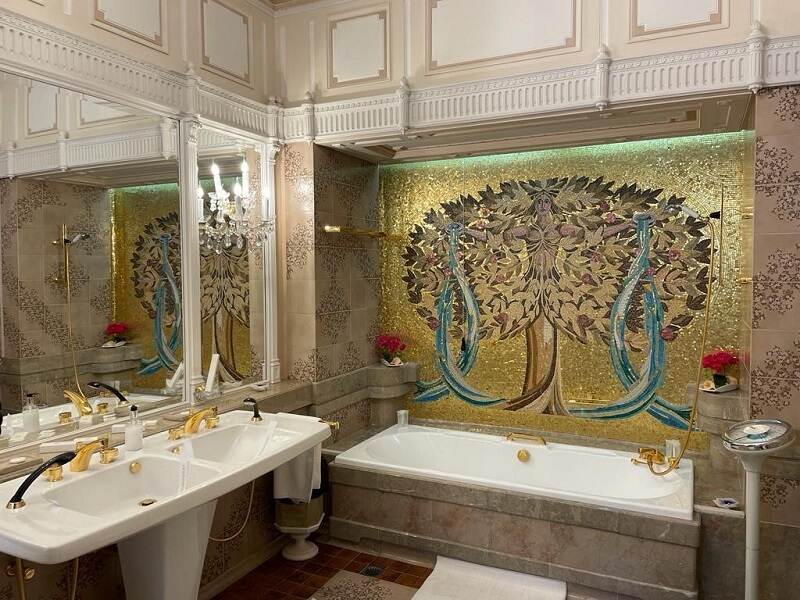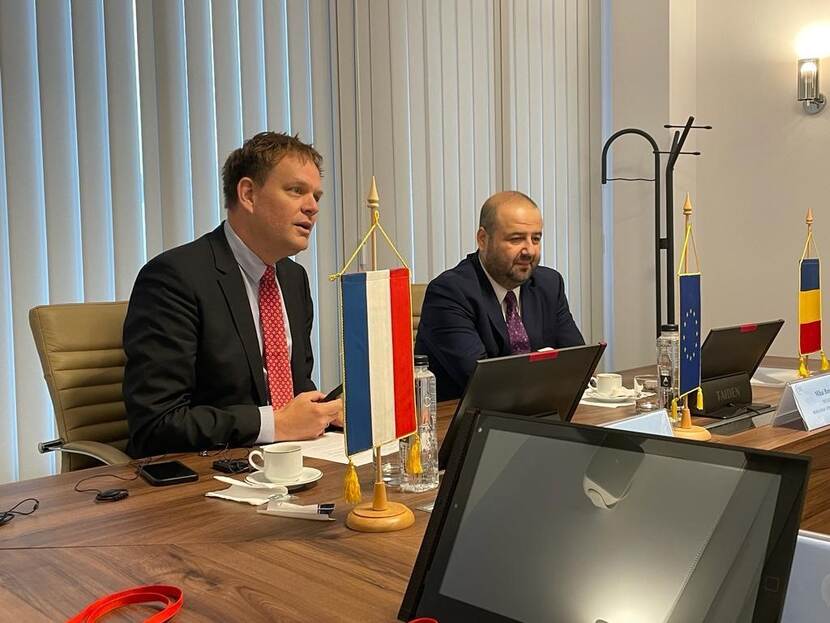Golden taps
Weblogs
We are standing in the bathroom of Romania’s former dictator, Nicolae Ceauşescu. All that glistens is gold. Literally. Even the taps. Not really an economic use of public money. Certainly not in the 1980s, when many people in Romania didn’t have enough to eat. My colleague Brigitte Obertop and I are guests of the president of the Romanian Court of Accounts, Mihai Busuioc. He insists on showing us round the palatial government complex where we are staying in Sinaia. Fortunately, a lot has changed for the better since Ceauşescu’s time. Romania is now a proud, democratic member of the EU and has an independent supreme audit institution. Curtea de Conturi – the Romanian Court of Accounts – can trace its history back to 1864.

Last year, the Netherlands Court of Audit and the Austrian and Polish supreme audit institutions peer reviewed the Romanian Court of Accounts. We found that there was still a lot of potential for improvement. In fact, a cultural revolution would not be out of place. Less focus on ticking off rules, more on Romania’s economic and efficient use of public money. On his Sunday off, the president is showing us the dictatorship’s profligate use of public money. He also takes us to the former king’s Peles Palace. Another uneconomic use of public money, but a beautiful one. It fully deserves its fame as a tourist attraction. On Sunday evening we chat about how audit institutions must modernise. He’s interested in our short and fast focus audits. Thanks to the peer review, we are already on good terms with the Romanian Court of Accounts and we understand each other.

The next day we travel back to Bucharest and have lunch with the Dutch ambassador. Together with Busuioc, we discuss the good ties between our countries. The Court of Audit will continue its support for the Romanian Court of Accounts and advise it on performance audits and other audit topics that are relatively unfamiliar in Romania. The support will be funded by the Dutch Ministry of Finance. From breakfast until dinner and late into the night, President Busuioc bombards us with questions. How do you select your audits? How do you find good auditors? What does your audit process look like? What’s your relationship with parliament and the government? We do our best to answer them all.
In the afternoon we visit the Romanian parliament. It is housed in another of Ceauşescu’s palaces. It is enormous. After the Pentagon in America, it is the largest building in the word. It’s fitting that it’s now home to the Romanian parliament. The President of the Chamber of Deputies, Marcel Ciolacu, welcomes us. We discuss the benefits of building a strong relationship with parliament, for instance by holding closed briefings shortly before a publication, a common practice in the Netherlands. Or by setting up a parliamentary committee on government expenditure. We discuss these ideas with Cossette Chichirău, a member of the Chamber of Deputies and vice-chair of the Finance Committee.
On the next day, we have one appointment before we leave for the Netherlands. We meet with the entire Board of the Romanian Court of Accounts. I’m taken aback when I see there are 18 members. Quite a lot more than the 3 on the Court of Audit’s Board. Brigitte and I gave a presentation, but it’s more of an open conversation. I remind them that our previous President, Saskia Stuiveling, regularly warned, ‘We have to change to stay the same’. The Romanian Court of Accounts is no exception. Our impression is that President Busuioc is highly driven and enthusiastic about change. We will continue to make our modest contribution in the coming time to ensure that public money is spent for the benefit of the people of Romania, not on golden taps.